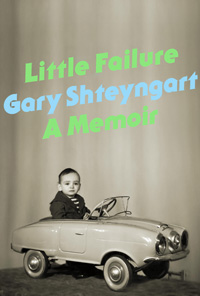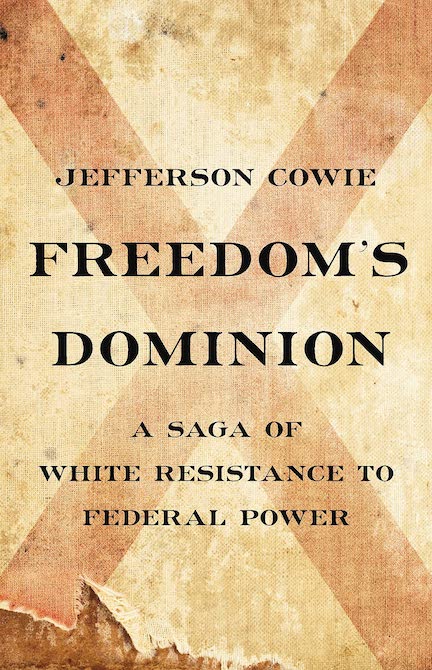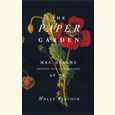Great Success
Acclaimed novelist Gary Shteyngart talks with Chapter 16 about his memoir, Little Failure
For much of the last decade, Gary Shteyngart’s reputation for uproarious and acute satire was rivaled only by the prestige of his pithy jacket copy for other writers’ books. The Shteyngart Blurb became a genre of its own, the subject of an extensive online catalog and even a short documentary. Demands for his praise eventually became so great that Shteyngart announced his retirement from blurbing, but when he published his own memoir, Little Failure, earlier this year, colleagues had plenty of sincere accolades to offer. Some of the most insightful comments came from acclaimed novelist Zadie Smith (who was not even returning a favor: she never received a Shteyngart blurb): “How did an asthmatic seven-year-old Russian-Jewish immigrant in a sailor suit become one of the most beloved of contemporary American writers?” asks Smith. “Not without struggle, both historical and personal, and with a great deal of humor and grit. But mostly through paying close attention: to the way people speak, move, love and hurt each other.”
 Through examination of his own conflicts, Shteyngart reveals fundamental truths about culture, the inner workings of a family, and the making of an outstanding writer. Little Failure follows him through every difficult transition, from impoverished Soviet Jewish citizen, to Soviet Jewish immigrant completely unprepared for cultural isolation, to fully acculturated American teenager, to young adult searching for purpose and fulfillment. Shteyngart turns both his devastating wit and his keen observational eye on every heartbreaking situation, a literary method he’s described as “an ICBM of humor with a payload of meditated historical sorrow.”
Through examination of his own conflicts, Shteyngart reveals fundamental truths about culture, the inner workings of a family, and the making of an outstanding writer. Little Failure follows him through every difficult transition, from impoverished Soviet Jewish citizen, to Soviet Jewish immigrant completely unprepared for cultural isolation, to fully acculturated American teenager, to young adult searching for purpose and fulfillment. Shteyngart turns both his devastating wit and his keen observational eye on every heartbreaking situation, a literary method he’s described as “an ICBM of humor with a payload of meditated historical sorrow.”
The story of Shteyngart’s first novel, written at age five for his grandmother, who paid him in cheese, is a great example. In the story, Lenin and His Magical Goose, the statue of Vladimir Lenin, which stands in Moscow Square in Shteyngart’s hometown of Leningrad, comes to life and makes plans to annex Finland, with help from an enormous goose who is soon outed as a traitor. “The lesson of Lenin and His Magical Goose is: Love authority but trust no one,” Shteyngart explains. “There’s also this: I am writing the novel for my grandmother, a Communist for most of her life, and I am saying Grandmother: Please love me. It’s a message, both desperate and common, that I will extend to my parents and, later, to a bunch of yeshiva schoolchildren in Queens and, still later, to my several readers around the world.”
Shteyngart is the bestselling author of three novels: The Russian Debutante’s Handbook, Absurdistan, and Super Sad True Love Story. His next novel, an international thriller titled Hotel Solitaire, is due in 2017. He recently answered questions from Chapter 16 by email:
Chapter 16: Parts of Little Failure were published in The New Yorker, The New York Times Magazine, and elsewhere over several years. As you worked to connect the dots between them, were you surprised by anything you’d written before?
Gary Shteyngart: Yeah, roughly 19.6 percent had been published before. It was interesting to see how close I had gotten to some of the more sensitive subject matter before pulling back. Little Failure was my attempt to go full force into the scarier parts, including just how frightening a young man I had become in my post-teenage years.
 Chapter 16: Your memoir is an unflinching appraisal of your family and of yourself. How did you find the courage to be so honest?
Chapter 16: Your memoir is an unflinching appraisal of your family and of yourself. How did you find the courage to be so honest?
Shteyngart: My take on memoirs is you either write the whole truth as you know it, or you don’t bother and just stick to fiction where you can fictionalize all the embarrassing details.
Chapter 16: Little Failure is both heartbreaking and laugh-out-loud funny. How does a writer find the balance between humorous anecdotes and the tragedy they help to illustrate?
Shteyngart: I was very lucky in the sense that all the horrible things that happened to me were kinda funny in their own right. That’s a pretty Russian circumstance: the worse things are, the more they make you laugh.
Chapter 16: You began writing, in part, because as a boy you craved approval. What motivates your writing now? If your motivations have shifted, has the experience of writing changed along with them?
Shteyngart: I have a mortgage now. Before my first book came out there was a great excitement every time I took out my laptop because I had no idea if anyone would ever see my work; in fact, I suspected no one would. Now it’s more of a job because people expect me to meet deadlines. The mysterious act of writing has been replaced by a more quotidian one.
Chapter 16: Your fiction draws heavily on the realities you explore in your memoir. In an age when vast oceans of data are constantly at your fingertips, what is the role of imagination in fiction?
Shteyngart: Fiction is one of our last refuges from data. No wonder enrollment in creative-writing M.F.A. programs has gone through the roof. People want out of data-world!
[This interview appeared originally on August 12, 2014. It has been updated with new event information.]

Stephen Trageser is a lifetime Middle Tennessee resident and a freelance writer. When he isn’t absorbed in a book, on behalf of Chapter 16 or just for fun, you’ll likely find him previewing or reviewing music for the Nashville Scene.





